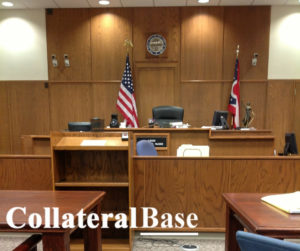Sue Illinois For Cannabis License
Many Teams May Sue Illinois for a Cannabis License

Filing a lawsuit against the state of Illinois for a cannabis license may be a common practice after so many teams lose their bid to become dispensaries, or cultivators.
As I sit down to write this article, there are less than two weeks left before the deadline to submit all craft grower, infuser and cannabis transporter cannabis business applications to the Illinois Department of Agriculture. My colleagues and I will be submitting several very strong teams to the state, along with digital reams of papers making up their applications.
Cannabis license applications can exceed 1,000 pages in Illinois
Why Teams will Sue Illinois for a Cannabis License
We think that all of our teams are strong and all of them have earned a license from the Department. However, Illinois only allocated forty craft grower and infuser licenses. For reference, Illinois only allocated 75 adult-use dispensary licenses, and received approximately 700 teams that submitted over 4,000 applications. The State recently awarded KPMG the contract to grade the recent round of dispensary applications. The contract provides for a mysterious grading consulting project for two million dollars ($2,000,000).
Want to Appeal your Cannabis License Decision?

David Silvers
Regulatory Lawyer
Whether this is your first land-use issue or most recent, our office has helped people and businesses alike.

Thomas Howard was on the ball and got things done. Easy to work with, communicates very well, and I would recommend him anytime.
R. Martindale
Lawsuits Because Cannabis License Applications Are Scored by Outside Consultants and Mistakes Are Made
Another interesting note in the State’s contract with KPMG is that it estimates another $500,000 in “legal consulting,” at a bulk rate of $200/hour. In layman’s terms, the State seems poised to hand off a scores of hours of the review work to “contract” or “project” attorneys. As many readers know, contract attorney work essentially involves cramming a bunch of lawyers into a room, where they are paid too little to grind away at monotonous work, resulting in a product that few people like. Or, as the old Soviet adage goes, “we pretend to work, and they pretend to pay us.” Presumably, the craft grower, transporter, and infuser licenses awarded by Illinois Department of Agriculture will be subject to a similar process. The way to sue Illinois for a cannabis license is the same for any license type.
Why Hundreds of Lawsuits for Cannabis Licenses May be Filed Against Illinois
The simple math dictates that most applicants will lose. 4,000 applications for only 75 dispensary licenses equates to a 98.125% chance of failure but hope springs eternal in the green rush of the cannabis industry. If the odds were not long enough, the scoring process set up by the state makes it more likely that some applicants will lose simply due to human error. Many of those applicants will have poured an immense amount of time and money into their applications too. For good reason, they’re going to want to sue the State of Illinois to get the license they believe they’ve earned.
Illinois Cannabis Law Provides Judicial Review under Illinois Administrative Review Act
The Cannabis Regulation and Tax Act (“CRTA”), allows applicants to sue under the state’s Administrative Review Law. 410 ILCS 705/15-175(a) provides that “[a]ll final administrative decisions of the Department hereunder shall be subject to judicial review under the provisions of the Administrative Review Law[.]” Section 15-175(b) provides that proceedings for judicial review take place in the county in which the party applying for review (the applicant) resides, or Sangamon County for an out-of-state party.
The Illinois Administrative Review Law (“ARL”) has a few noteworthy provisions. First, 735 ILCS 5/3-103 requires that the party seeking review must file a complaint and issue a summons within thirty-five (35) days of the administrative decision in question. The Plaintiff can essentially require the Department of Agriculture or the IDFPR to provide the full record of the review process under Section 3-108(a).
However, “[n]o new or additional evidence in support of or in opposition to any finding, order, determination or decision of the administrative agency shall be heard by the court.” 735 ILCS 5/3-110. The same section provides that “[t]he findings and conclusions of the administrative agency on questions of fact shall be held to be prima facie true and correct.”
This last provision is especially tricky for Illinois cannabis business licenses. The applications have concrete criteria, with a seemingly comprehensive point system. However, applicants are scored based on not only their compliance with the law, but also their potential and ability as businesses. For example, if the Department determines that an applicant’s proformas and capital amounts are good, but not that good, is that a determination of law or fact? These applications seem more like the classic mixed questions of law and fact, and yet the ostensibly objective scoring is based on very subjective human decisions.
Questions of law & fact in Cannabis License Litigation
Further complicating the matter is the timeframe for releasing the scores that is built into the statute, which could only be changed by executive order. This has already happened in Illinois, when on March 12, 2020, Governor JB Pritzker issued an executive order related to the coronavirus that extended the application submission deadline by two weeks. Additional delays may be forthcoming for Illinois.
Review of Other States Litigation for Cannabis Licenses
Looking to other states, we have a good idea of what comes next as cannabis litigation ramps up. The state of Florida has taken up the practice of simply settling with litigants in exchange for grant of a license. Florida is also going through a separate legal battle because the state requires cannabis companies to be vertically integrated, which has the effect of creating massive barriers to entry. Missouri is also facing severe backlash after its last round of applications. There is a huge number of lawsuits pending after many of the hundreds and hundreds of applicants failed to qualify for the state’s 60 cultivation licenses. More troubling in Missouri is that the winners seemed to often be politically connected individuals. In preparing our applicant teams, we’ve witnessed first-hand just how much of a difference local governments can make in supporting or opposing an applicant. Suffice to say, many team will probably sue Illinois for a cannabis license.
Conclusion for how to sue Illinois for a cannabis license
We can’t say for sure how cannabis litigation will go in Illinois. But if Florida and Missouri are any indication, it’s about to be a big business that here’s to stay.
Want to Appeal your Cannabis License Decision?
Need A Business Lawyer?
- real estate contracts
- business contract disputes
- Shareholder litigation
- cannabis business
- fraud actions
- mechanic’s liens


